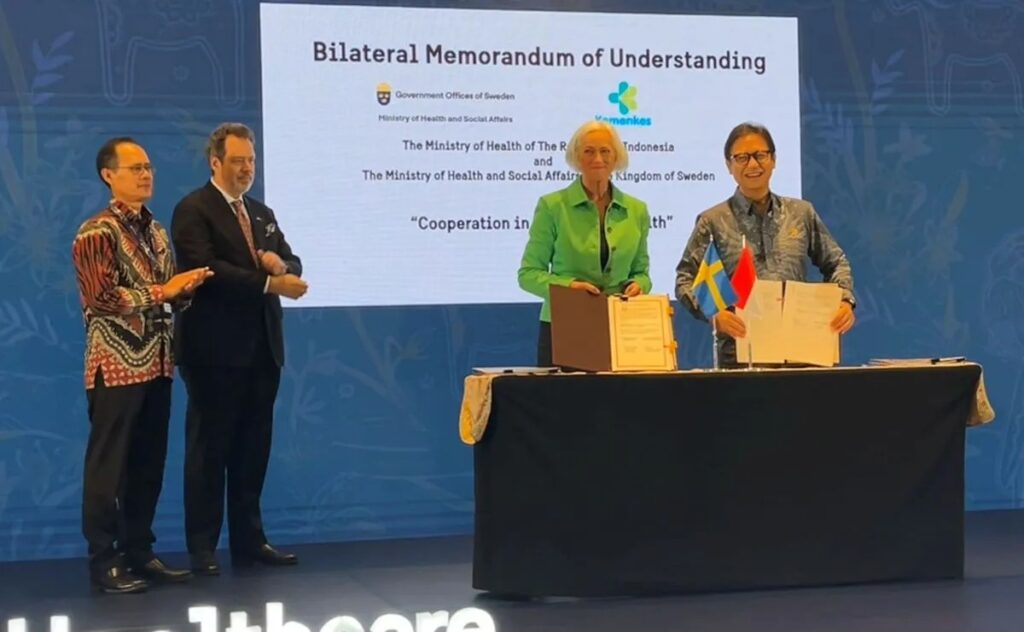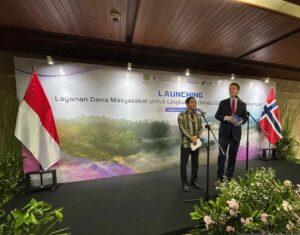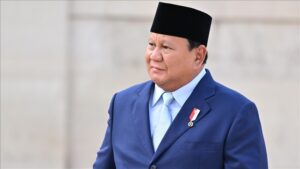Indonesia and Sweden Strengthen Healthcare Cooperation Through MoU Signings

Jakarta, The Gulf Observer: The Indonesian Ministry of Health has signed a series of memorandums of understanding (MoUs) with the Swedish government and healthcare companies to enhance bilateral cooperation in the health sector. The agreements were formalized during the Sweden-Indonesia Sustainability Partnership (SISP) Healthcare Conference held in Jakarta on Tuesday.
Health Minister Budi Gunadi Sadikin emphasized that the MoU signings reflect the mutual commitment of Indonesia and Sweden to improve public health outcomes and the quality of life for the Indonesian people.
“Collaborations in healthcare are universal in their goals,” Minister Sadikin stated. “This partnership with Sweden underscores our shared objective: to save lives and improve health.”
The primary MoU, signed by Minister Sadikin and Swedish Health Minister Acko Ankarberg Johansson, covers broad areas of collaboration, including information and knowledge exchange, technological capacity-building and training, and support for joint ventures in the healthcare industry. It will also facilitate cooperation in advanced fields such as precision medicine, robotic surgery, artificial intelligence, digital health technologies, and the formulation of healthcare policies.
A second MoU was signed between the Health Ministry’s Secretariat General and Swedish hygiene and health company Essity. This agreement focuses on capacity-building and the exchange of expertise in managing antimicrobial resistance (AMR), a growing global health challenge.
A third agreement, inked by the Ministry’s Directorate General of Advanced Healthcare and Swedish development finance institution Swedfund, allocates 9 million Swedish Krona for a feasibility study on establishing a radiotherapy center. The initial study will be conducted at Dharmais Cancer Hospital in Jakarta, aimed at bolstering Indonesia’s cancer treatment infrastructure.
Additionally, the Directorate for Non-Communicable Diseases Prevention and Control signed a fourth MoU with global biopharmaceutical company AstraZeneca. This collaboration will focus on enhancing strategies for the prevention and control of non-communicable diseases (NCDs), which remain a major public health concern in Indonesia.
Beyond the formal agreements, the two nations also marked the launch of a pilot initiative under the GARDA (Growing Access to Reliable Diagnostics for Adolescent Boys) project. Implemented by Swedish company HemoCue in partnership with the Jakarta Health Office, the program aims to improve anemia diagnostics among school-aged boys in Jakarta, supporting early detection and treatment of nutritional deficiencies.
The series of MoUs and project launches underscore a growing partnership between Indonesia and Sweden, focused on innovation, equity, and improved access in healthcare delivery.


